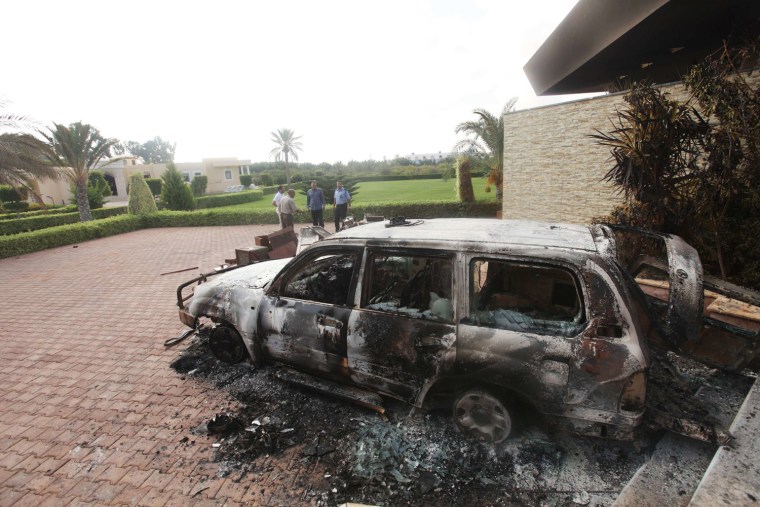Donald Trump has said so many strange things about the 2012 terrorist attack in Benghazi, it may be tempting to look past his latest tirade, assuming it's more of the same. But when it comes to the Republican candidate's rhetoric last night, don't be too quick to dismiss it out of hand.Trump addressed a crowd in Wilkes Barre, Pennsylvania, where he talked about Benghazi while holding a piece of paper in his hand. According to the GOP nominee, he was holding the printout of an email Sidney Blumenthal sent John Podesta -- two prominent Hillary Clinton allies -- in which, Trump said, Blumenthal "admitted they could have done something about Benghazi."As the crowd chanted, "Lock her up!" Trump dropped the printout and said, "This just came out a little while ago."So, what was Trump referring to? This gets a little complicated, but stick with me.Newsweek's Kurt Eichenwald wrote a lengthy piece about Benghazi a year ago, which acknowledged, among other things, missteps from Clinton's State Department in advance of the attack. Blumenthal emailed the article to Podesta, now Clinton's campaign chairman, whose emails were recently hacked, probably by Russian officials, and published online by Wikileaks.Yesterday, a Russian-controlled news agency screwed up the details, and published what it characterized as a bombshell: "Blumenthal believed that the investigation into Benghazi was legitimate because it was 'preventable' and the result of State Department negligence." Apparently, Sputnik thought Blumenthal wrote Eichenwald's Newsweek piece, and interpreted last year's article, which has been online for 12 months and is consistent with everything we know about Benghazi, as a new, "major revelation."Eichenwald asked last night:
This false story was reported only by the Russian-controlled agency (a reference appeared in a Turkish publication, but it was nothing but a link to the Sputnik article). So how did Donald Trump end up advancing the same falsehood put out by Putin's mouthpiece? [...]The Russians engage in a sloppy disinformation effort and, before the day is out, the Republican nominee for president is standing on a stage reciting the manufactured story as truth. How did this happen? Who in the Trump campaign was feeding him falsehoods straight from the Kremlin?
Those need not be rhetorical questions.Remember, as far as Trump is concerned, "This just came out a little while ago." But as it turns out, "this" refers to a bogus article from the Russian government's news website, which published a mistaken report just hours ahead of Trump's rally, where he read the nonsense directly from a piece of paper.I certainly don't expect Trump or his campaign to acknowledge the fact that he was lying to his supporters in Pennsylvania last night, but it'd be interesting to learn more about how this came about. How did the mistake go from Russia's government in the morning, literally into Trump's hands in the evening?Update: The Washington Post, breaking down the timeline in detail, makes the case that Sputnik "has a reasonably large audience: A million people like it on Facebook, and nearly 200,000 follow it on Twitter," which means any number of people could've shared it with the campaign. The piece added that this incident largely only proves that Trump "will happily pick any news off the Internet and broadcast it to the world, accurate or not."
